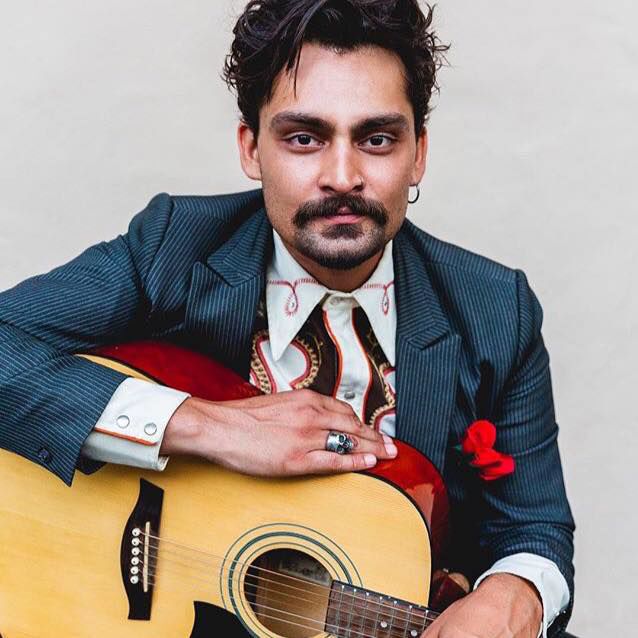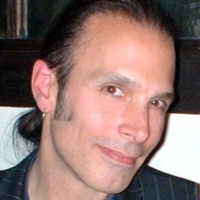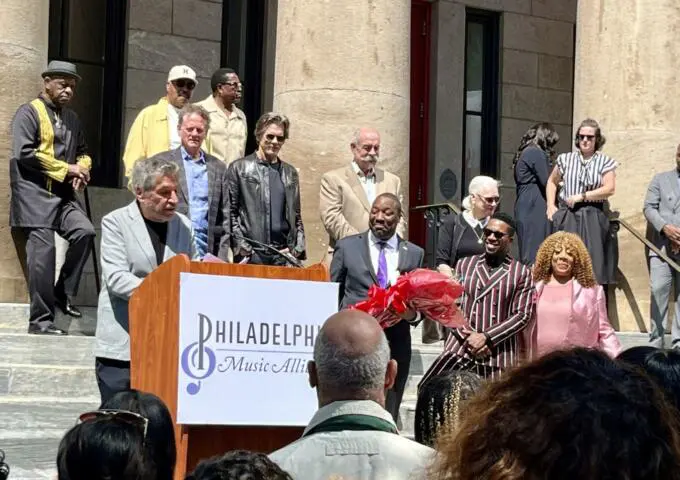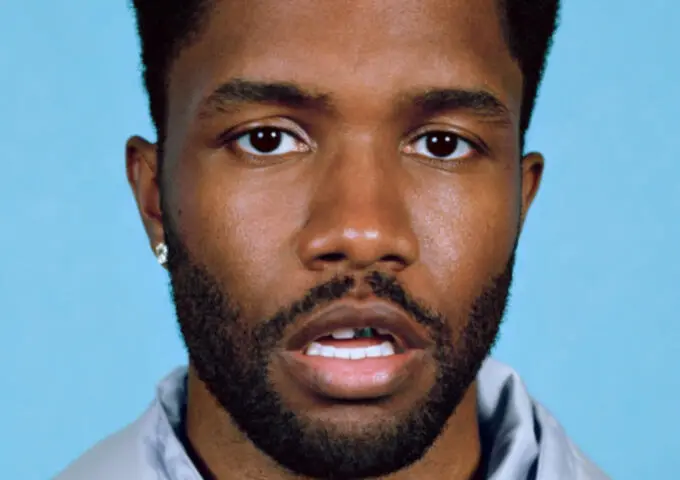When Ali Awan takes the stage at this year’s NON-COMMvention, the annual event catered to and by public music radio programmers, industry and talent, it will be the big cherry on the icing of the sweetest cake in the greatest meal of his long career.
The Abington-based songwriting singer and guitarist will perform alongside the likes of Morrissey and The National during the multi-day festival running May 14-24.
Awan’s played in Philly punk bands Ballistik and Jane Church, spent time as part of Wild Joy and still plays guitar for Britt Thomas & the Breaker Boys. Now, this Turkish-American has found his own voice, one filled with noisy, jaunty guitar lines laced with hints of blues and mysterious grace notes.
Lovely and lonely, ruminating, inward-looking lyrics marked by deep, cutting vocals are all gathered neatly on his warm and wired, recently-released EP, “Butterfly.”
Ahead of NON-COMM, Awan sat down and thought about the moments of his past that made him the versatile Philly wunderkind he is today.
I know you were born in the Philly area, which allowed you to claim American citizenship. Returning to Turkey, your family’s homeland, what are your first memories?
The first thing that I can remember about growing up in Turkey is the smell of taxis. Old leather and stale tobacco mixed with this lemon cologne that’s very specific to Turkey. It’s such a nostalgic smell for me. Also, the bazaar in Istanbul called Kapali Carsi or Grand Bazaar. It’s this immense maze of shops filled with clothes, textiles, precious metals – some not so precious – honest salespeople, dodgy salespeople. It was one of the first places I thought, ‘If you get lost here, you might never get found.’
What are your sonic memories of Turkey? Not just musically.
Well, the call to prayer was almost like a clock. It’s a majority Muslim country so the adhan (call to prayer) happened five times a day. Also, roosters were everywhere. Even in the cities, you could hear roosters. Sometimes the roosters and the imams doing the adhan were just as loud. A solid juxtaposition of wake up calls. Car horns. Salvaged motorcycle engines. They were huge. The traffic is, let’s say, more of an honor-based system than a law-based system. Long story short, Turks are insane drivers. But to their credit, I never once saw a car accident. Some fender benders, but that’s par for the course. Street sellers. Our neighborhood had fruit trucks instead of ice cream trucks. People yelling the various foods they had for sale. I loved that. Ferry and boat horns. Stray dog barks. It’s a really magical place, sound-wise.
Did you have family members in Turkey beyond your parents? Were they gregarious, loud people, or quiet and sedate?
(Laughs) Yeah, I have cousins and uncles/aunts in Turkey. No family in Saudi Arabia, though. That was just me and my immediate family at the time. All the Pakistani side of the family was in the UK or Pakistan at the time and still is. The Turkish side of my family knew how to party – and be loud. But they’re also people that are very aware of when to be quiet. They’re good listeners. There’s this liquor called Raki which is anise seed-based.
It’s supposed to be mixed with water and looks like a syrupy vodka before it’s mixed, then looks cloudy when it is. I think it’s delicious, some people think it’s disgusting. There would always be some at celebrations and dinners unless it was Ramadan. I wish we could have some right now. It just helped stories and jokes fall out of people’s mouths, just like booze does anywhere else, for better or for worse. We’re a lot like Italians as far as culture goes, now that I think about it.
––
“The ‘Butterfly’ EP contains a lot of self-reflection. I’ve been doing a lot of that personally, re-focusing on what I desire from the music industry and myself. Some of the new material will answer a lot of my own questions – and ask a few more.”
– Rock musician and Abington resident Ali Awan
––
We always come together around food, and if you don’t eat or say “I’m not hungry,” people look at you like you’re nuts…Both nationalities really talk with their hands and bodies, too. Lots of things are said through a hand motion instead of a word, those things that require no translation. Physical punctuation. Sedate isn’t a word that comes to mind when I think of Turks.
I ask all this because I’m curious as to how traditional lullabies and/or family songs you may have picked up on may have eventually been fueled/fused into your own more current and Westernized song.
There’s a little riff in “Citadel Blues” that reminds me of Turkey and the scales Turkish folk musicians use. I can’t honestly remember any lullabies or specific songs my family would sing. But my family always had Turkish music on, from Turk pop like Tarkan to classical folk singers like Ibrahim Tatlises. People singing in groups really comes to mind too, whether it was in a soccer stadium or at a party. No one is a terrible singer in Turkey because it’s a part of life. Even if you’re bad, you’re singing, so you’re good. Someone will harmonize and help you out. I’ve been working on a new song that has a really Mediterranean/middle eastern lick in it. Can’t find a damn vocal melody for it, though. Maybe it’ll just be an instrumental track.
What was your spiritual-religious upbringing? Does everyone hold that fact so dear and private? Were they/are you Islamic, and are you still down for believing, for prayer?
My family is Muslim, yes, but not all of us are as devout or strict. I was lucky enough to have very open-minded parents that supported me even when I ‘went astray.’ My dad is devout, but not strict. He prays five times a day, fasts during Ramadan, doesn’t drink, doesn’t smoke, the whole thing. But. He’s also the first person that bought me a guitar and paid for my lessons. My mom would get me to learn prayers by buying me toys when I remembered one, so maybe that helped with remembering lyrics. The prayers were in Arabic, which we didn’t speak in my household, so you had to remember syllables as well as the order they were in. She isn’t as strict with herself as my dad, but she only eats halal meat – something she does, but my dad doesn’t. I remember going to a mosque for the first time with my dad and the whole congregation says ‘amen’ together. It sort of scared me because it was so loud and slow. I really came to like hearing it after a while, though. It’s like a weird, dissonant chord that sounds nice. I’ve personally never been very religious, though. I used to go through the motions as a kid to not get in trouble.
Your family moved around a bit – winding up in Saudi Arabia, after Turkey – before you got back to Abington. Did you like bouncing around as a kid, or do you think that you were too young to be bothered?
I loved it. I was in this perfect age where leaving friends didn’t matter as much, and my brain was soaking everything up. I and my mom would play this game in airports, pick a person far away and narrate their inner dialogue out loud. It was hilarious, I still do it to this day. I used to sleep on the floor on airplanes too. I think that’s why I like ambient noise before I go to sleep. The engine hum really helped me not think about the fact that we were in a metal tube flying at hundreds of miles per hour a mile above the face of the earth. Road trips, flights, waking up in a different place during a trip. It’s a lot like touring (laughs).
I ask about traveling because I’m curious if you might feel your nomadic youth became applicable to/influenced your work as a songwriter and its occasional lonely vibe?
Now that I think about it, it’s helped very much. Knowing how to be happy alone is a life skill. For me, being alone is when I digest my experiences. And that’s basically songwriting, in my opinion. Even if you’re singing/playing while thinking about someone or something else. Phones are robbing us of the pleasure of solitude. Knowing how to say goodbye and mean it is a skill as well.
What sort of childhood memories from the Middle East do you have in regard to what were you listening to there? Was there Western music/rock and roll filtering into the environment, or was it difficult to find? Maybe that rarity is what makes the rock you do now so passionate and raging.
Good point. I never thought of it that way, to be honest. Perhaps it did make rock and roll mean a lot more to me. I remember stealing candy as a kid in Saudi Arabia, and that they cut your hand off for that, which is true. That scared the hell out of me. It’s insane. Rock and roll would’ve been very difficult to find in Saudi Arabia, but not so much in Turkey. I was just too young to really appreciate and seek it out on my own volition while I was based in Turkey. The music that I remember hearing as a kid was mostly pop and folk from both Turkey and Saudi Arabia. The pop music there is a lot like here, just a different language. My mom always had some gems on in the house or car, though. She always loved the Stones, Zeppelin, Bowie, classics like that. She had her book of CDs and a box of tapes she’d bring from place to place when we moved. The foundation.
How does ‘Butterfly’ contain all that we just said and all that you are now – as an artist and as a man – and what do you think your even newer material is going to say about you?
The ‘Butterfly’ EP contains a lot of self-reflection. I’ve been doing a lot of that personally, re-focusing on what I desire from the music industry and myself. Some of the new material will answer a lot of my own questions, and ask a few more.
TWITTER: @ADAMOROSI





